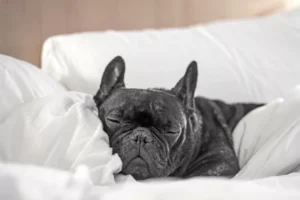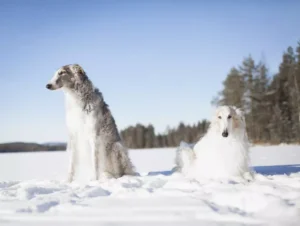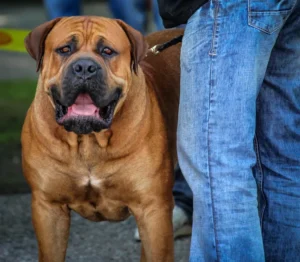
Cat drooling is common when felines are kneading or purring–they’re simply so relaxed! But stress or fear could also trigger some saliva or spit bubbles on either side of their mouths; more serious health conditions, like exposure to toxicants, dental disease or trauma could also contribute to this behavior. Determining its source requires understanding your cat as an individual as well as consulting a veterinarian if necessary.
Why Is My Cat Drooling? It is not unusual for cats to drool when kneading or purring. Drooling is often used as an indicator of relaxation and contentment that dates back to kittenhood when nursing is stimulated through kneading their mother’s feet to stimulate milk release, leading them to have comforting meals while creating nurturing bonds between mother and kitten. As adults reach adulthood and feelings of contentment arise they often lead to kneading which leads directly into drooling due to nursing connections between mother and cat that then results in comforting meals while creating nurturing bonds between mother and kitten as well as feelings of contentment which leads them back into nursing which then triggers kneading which then causes drooling just like it did during kittenhood – often purring follows suit!
When your otherwise healthy cat jumps onto your lap and begins “making biscuits” or purring, don’t be alarmed if drooling occurs; this is perfectly normal and may even be one way they show their affection towards you! This may even be part of their way to show it!
As opposed to dogs, cats tend not to drool at the sight or smell of food as often, though this could still occur. If your feline drools at only these times then there’s likely nothing serious wrong;
Stress or fear may cause cats to drool temporarily during car rides, vet visits, or loud events; if this becomes frequent or extreme it would be wise to speak to your vet about potential treatments – though short-lived episodes typically pass quickly without much worry being necessary.
Abnormal Drooling in Cats
If your cat’s drooling seems abnormally frequent, it could be indicative of health issues. Drooling is particularly concerning if it cannot be related to contentment or food consumption; all cats should visit their veterinarian at least annually for wellness checks even if they appear healthy as these exams will often detect problems before your cat displays any obvious symptoms.
If your cat exhibits abnormal drooling between scheduled visits to their vet, you should seek immediate veterinary help immediately. There may be health concerns causing their drooling that require medical intervention; in such instances it’s wise to notify both parties immediately.
Oral and Dental Disease Cats can suffer from oral and dental conditions that often go undetected until they cause extreme illness or pain, leading to excessive cat drooling. Common issues include mouth ulcers, tooth injuries, gum disease, resorptive lesions and infections – all known causes for cat drooling.
Your veterinarian will conduct an exam of your cat’s mouth to detect signs of dental and oral disease. If this condition is detected, they may recommend professional dental cleaning with possible tooth extractions; this procedure must be conducted under general anesthesia.
Antibiotics may be necessary to address dental and mouth issues in your cat.
Nausea
Cats who are feeling queasy or have recently vomited will typically drool a lot. Causes for vomiting in cats could include parasites, kidney disease or digestive conditions affecting digestion – so if your cat seems discomfited and begins vomiting regularly it’s wise to consult a vet immediately. If they seem discomfited for any reason or have lost appetite it would also be prudent to visit them ASAP for assessment and possible medication if required.
After performing an exam, your vet may suggest lab work to further examine organ function, blood cells and urine content – this information could then help direct diagnostic and treatment decisions moving forward.
Foreign Bodies If your cat has something stuck in his mouth, it could result in excessive drooling. Common oral foreign bodies include string, toy parts or grass – however if you see anything hanging out of their mouth that looks suspiciously like string – do not try and pull it out as this could damage something inside their stomach or intestines and create further problems – instead take them immediately to an open vet office or emergency clinic instead.
Cats exposed to toxic substances can exhibit excess salivation, including poisonous plants, caustic chemicals, or toxic foods. Even topical toxins like pesticides or flea and tick preventatives not intended for cats may lead to excessive salivation and cause the same results. If you suspect your cat has come in contact with anything toxic, bring him or her immediately to an available veterinarian for assessment.
Trauma
Mouth injuries often cause excess salivation.3 Cats that have chewed on electrical cords might experience oral burns that result in excessive salivation; cats hit by cars may suffer broken jaws that lead to constant drooling; felines involved in cat fights often experience oral injuries that cause them to drool excessively; this drooling indicates an internal injury that must be seen by a vet, even though you might not see visible evidence.
If your cat is drooling and there’s no obvious explanation, contact your veterinarian immediately. Cats are experts at hiding illness; often not showing symptoms until they feel quite sick themselves. Don’t wait; get yourself checked out immediately by a veterinarian.





